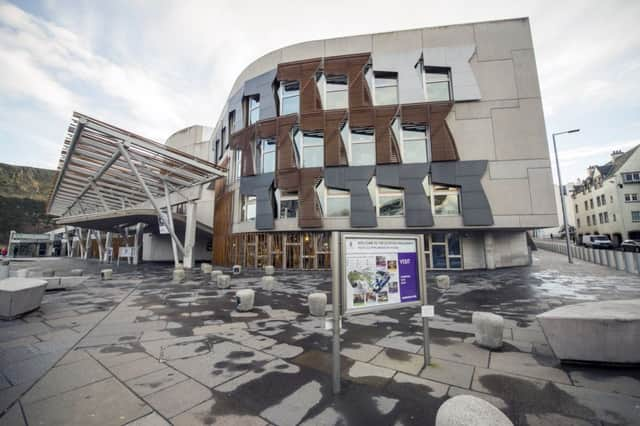Bid to ease burden of funeral expenses


Funeral poverty, and more specifically the UK Government’s Social Fund payment, has been high on the political agenda lately.
Echoing a long-running campaign by the National Association of Funeral Directors (NAFD), the MP for South Shields, Emma Lewell-Buck, spoke in parliament about the need for the government to begin index-linking the Social Fund payment in order to help out more families struggling to meet the rising costs of funerals. Introducing a Funeral Services Bill Miss Lewell-Buck said the Social Fund funeral payment needed a “complete overhaul” to help alleviate growing levels of funeral poverty.
Advertisement
Hide AdAdvertisement
Hide AdThe Social Fund payment is made to qualifying families by the state to help cover the cost of “other funeral expenses”. It has remained static at £700 since 2003 and the NAFD is continuing to press for changes to create a fairer system in line with inflation, and has met government officials to discuss the much-needed reform. Index linking would see the value of that payment rise, currently, to just short of £1,000.
The issue is, currently, a reserved matter, although it is expected to become devolved next year as part of the agreement between Westminster and Holyrood for greater devolved powers following the referendum.
As funeral costs, and in particular disbursements (associated costs out of the control of the funeral director such as burial/cremation fees, flowers, venue hire, officiant, church fees) continue to rise, so does funeral poverty, a debt families incur by paying for a funeral. A Royal London – investments managment firm – report into funeral costs published last month put the UK funeral debt at around £142 million, with the average cost of a funeral in Scotland £3,500.
It is not only families who are suffering over the refusal to increase the Social Fund payment increase for 11 years.
The £700 has to cover all other costs in connection with the funeral, which leaves funeral directors with little over £500 to cover their professional fees for arranging the funeral, a hearse and other transport, a coffin, bearers and more. Funeral directors’ costs averaged around £1,500 in 2014.
That’s why there is this shortfall; the ‘other funeral expenses’ payment covers less than half the cost of even the most basic funeral. The shortfall increases every year yet 80 per cent of NAFD members have never declined a funeral, even when they have known that the family are not able to pay. They risk being left in debt, as the funeral will have taken place before they know if a Social Fund funeral payment will be granted.
With local authorities increasing burial and other associated costs on an annual basis, the shortfall will increase unless it is addressed.
When we met the Minister of State Steve Webb last year we urged him to consider index-linking, and although it would not solve the problem, it would certainly be a step towards the system becoming fairer.”
Advertisement
Hide AdAdvertisement
Hide AdWe are delighted the issue has now been raised in parliament, and will work to ensure that when it becomes a devolved power, the Scottish parliament takes up the mantle and leads the way for the rest of the UK; at Holyrood the cross-party group on Funerals and Bereavement has long supported this move.
One area on which we cannot agree with the MP however, is her desire for a “simple funeral”.
The NAFD’s code of practice was revised last October. This version excludes a previous requirement to provide a simple funeral, following feedback that the NAFD received from members that the bereaved could misconceive it to be a “basic” option. It also didn’t reflect changing trends in what the bereaved now request at funerals, including many different types of coffin, donations and other aspects of a funeral.
There now exists such a choice – be it coffins, ceremonies, venues, memorials – that is makes it increasingly difficult to create a one-size-fits-all basic package.
It is better to offer a menu of choices which achieve best value and low overall costs. This includes an itemised list and written estimate.
This is fair and straightforward, not just bereaved families, but also the thousands of small, often family-run, funeral firms we represent.
• Paul Cuthell is President of the National Association of Funeral Directors